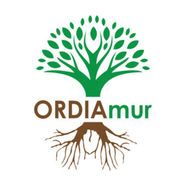Identification of Candidate Genes Associated With Tolerance to Apple Replant Disease by Genome-Wide Transcriptome Analysis (2022.0)
Reim S., Winkelmann T., Cestaro A., Rohr A., Flachowsky H.
Frontiers in Microbiology, 13 (),
Abstract
Apple replant disease (ARD) is a worldwide economic risk in apple cultivation for fruit tree nurseries and fruit growers. Several studies on the reaction of apple plants to ARD are documented but less is known about the genetic mechanisms behind this symptomatology. RNA-seq analysis is a powerful tool for revealing candidate genes that are involved in the molecular responses to biotic stresses in plants. The aim of our work was to find differentially expressed genes in response to ARD in Malus. For this, we compared transcriptome data of the rootstock ‘M9’ (susceptible) and the wild apple genotype M. ×robusta 5 (Mr5, tolerant) after cultivation in ARD soil and disinfected ARD soil, respectively. When comparing apple plantlets grown in ARD soil to those grown in disinfected ARD soil, 1,206 differentially expressed genes (DEGs) were identified based on a log2 fold change, (LFC) ≥ 1 for up– and ≤ −1 for downregulation (p < 0.05). Subsequent validation revealed a highly significant positive correlation (r = 0.91; p < 0.0001) between RNA-seq and RT-qPCR results indicating a high reliability of the RNA-seq data. PageMan analysis showed that transcripts of genes involved in gibberellic acid (GA) biosynthesis were significantly enriched in the DEG dataset. Most of these GA biosynthesis genes were associated with functions in cell wall stabilization. Further genes were related to detoxification processes. Genes of both groups were expressed significantly higher in Mr5, suggesting that the lower susceptibility to ARD in Mr5 is not due to a single mechanism. These findings contribute to a better insight into ARD response in susceptible and tolerant apple genotypes. However, future research is needed to identify the defense mechanisms, which are most effective for the plant to overcome ARD.